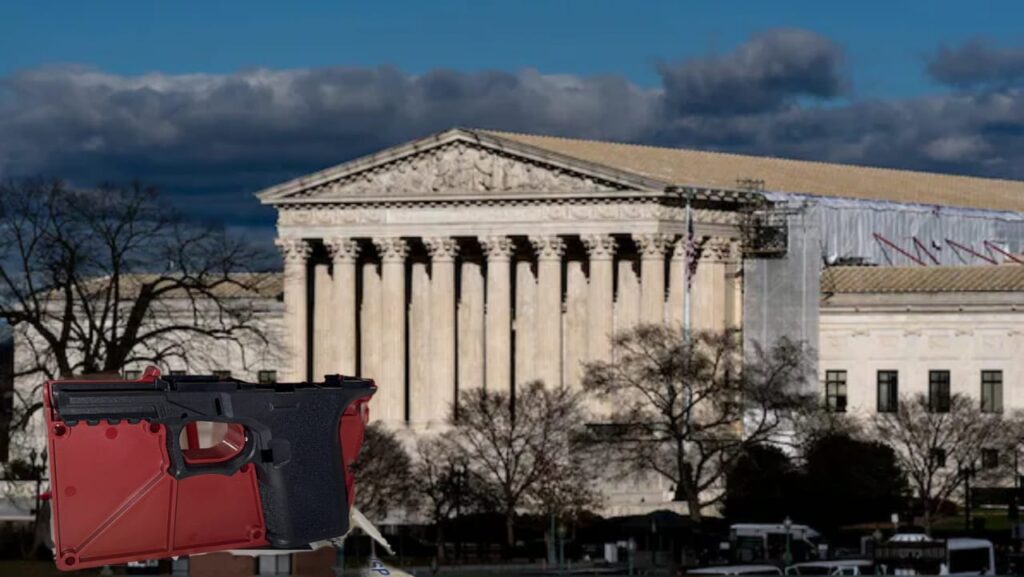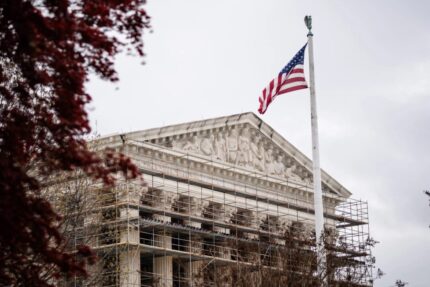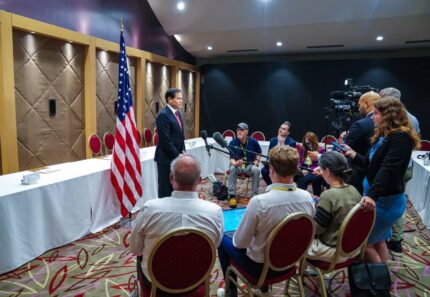In a dramatic and closely watched decision, the U.S. Supreme Court on Friday temporarily blocked the Trump administration from deporting a group of Venezuelan men detained in Texas under the rarely used Alien Enemies Act of 1798. The unsigned order grants an emergency injunction, siding with lawyers from the American Civil Liberties Union (ACLU), who argued the migrants were at imminent risk of wrongful removal without due process.
The justices ruled that the Fifth Circuit Court of Appeals had erred in dismissing the detainees’ case for lack of jurisdiction. They returned the matter to the lower court for further proceedings, asserting that the plaintiffs had not been given sufficient notice to contest their deportations. The Supreme Court emphasized that it was ruling only on the matter of notice and did not address the broader legality of using the Alien Enemies Act against the Venezuelans.
In a notable rebuke, the court stated: “We decide today only that the detainees are entitled to more notice than was given on April 18.” Justices Samuel Alito and Clarence Thomas dissented, arguing the high court lacked the authority to grant emergency relief and that the issue should have remained with lower courts.
Trump Reacts; Legal Advocates Sound Alarm Over El Salvador Deportations
Following the ruling, President Donald Trump took to Truth Social to express his frustration, writing: “THE SUPREME COURT WON’T ALLOW US TO GET CRIMINALS OUT OF OUR COUNTRY!” Trump has insisted that the deportations are necessary for national security, targeting individuals he alleges are connected to the Venezuelan gang Tren de Aragua.
However, legal advocates painted a grim picture. Lee Gelernt, lead counsel for the ACLU, described the ruling as a “powerful rebuke” to the Trump administration’s effort to “hurry people away to a Gulag-type prison in El Salvador.” The ACLU previously revealed that some deportees had already been sent to CECOT, a maximum-security prison in El Salvador known for housing gang members and terrorist suspects under extreme conditions.
The ACLU has also accused the administration of failing to provide meaningful explanation or adequate notice to detainees, claiming that the migrants were transferred across states—from California, Louisiana, and Minnesota to Texas—without proper legal procedure. Some migrants allegedly received notice of removal only hours before their scheduled deportations, and solely in English.
Legal Challenges Mount Against Use of Alien Enemies Act

The case has reignited legal battles over the use of the Alien Enemies Act, a wartime law that has only been invoked three times in U.S. history, all during declared wars. Trump’s March proclamation marked the first use of the law in the context of immigration enforcement against alleged gang affiliates from Venezuela.
Under the proclamation, Venezuelan nationals aged 14 and older with ties to the Tren de Aragua gang are considered “alien enemies” subject to swift removal. Over 100 Venezuelans have reportedly already been deported to El Salvador’s CECOT prison. In response, multiple legal challenges emerged across the country. Judges in Texas, New York, and Colorado have issued temporary blocks on deportations under the act.
In one instance, a Texas federal judge permanently barred the administration from deporting Venezuelans under the act in the southern district, stating that the proclamation exceeded its legal scope. Meanwhile, another judge in Washington, D.C., found probable cause to hold the Trump administration in criminal contempt for allegedly violating an earlier order concerning the deportation of migrants to El Salvador.
Supreme Court Divided on Urgency, Judicial Review
The Supreme Court has remained divided on how swiftly to resolve the legal issues at stake. While Friday’s ruling affirms the need for detainees to receive proper notice, it refrains from resolving whether the Alien Enemies Act is legally applicable to the current situation. Justice Brett Kavanaugh, concurring with the outcome, criticized the decision to remand the case, suggesting the Court should have ruled decisively now given the high stakes.
Kavanaugh referenced conflicting lower court decisions, including a Pennsylvania ruling that affirmed Trump’s use of the act. “The circumstances call for a prompt and final resolution, which likely can be provided only by this Court,” he wrote.
In contrast, Justice Alito, joined by Thomas, dissented strongly, maintaining that the Court lacked jurisdiction and should not interfere with the actions of the executive or the rulings of lower courts at this stage. The split underscores the complexity of balancing national security concerns with constitutional protections for non-citizens.
Next Steps: Lower Courts to Decide Fate of Migrants
The Supreme Court’s ruling instructs lower courts to move “expeditiously” in addressing cases arising under the Alien Enemies Act, stressing that while national security is paramount, it must be pursued in a manner consistent with constitutional guarantees. It also left the door open for the government to use other legal pathways, separate from the Alien Enemies Act, to deport individuals when justified.
With the high court’s decision, attention now turns to the Fifth Circuit Court of Appeals and other federal judges who will determine the next phase of legal proceedings. The ACLU has vowed to continue fighting for the rights of the Venezuelan migrants, warning that without proper judicial review, deportations could result in “lifetime sentences” in notorious foreign prisons without fair trials.
In the meantime, the Trump administration’s broader strategy to invoke 18th-century wartime powers in immigration enforcement remains legally untested and politically explosive — setting up a major constitutional showdown ahead of the 2024 election cycle.














